Turn off the case: what risks does an advocate take by ignoring sleep mode?

In legal practice, it is difficult to avoid overload: deadlines, multitasking, emotional work with clients, public speaking. But it is these factors that make advocates particularly vulnerable to the effects of chronic sleep deprivation.
How sleep affects thinking, memory, and the ability to concentrate was discussed during the webinar «Sleep as a superpower: how quality rest affects productivity and well-being».
The event was held with the support of the IBA as part of the project «Supporting the mental health of Ukrainian lawyers during the war», an initiative aimed at maintaining the emotional resilience and performance of the legal community under excessive stress.
The speaker was Natalia Kutova, geneticist, psychologist, and neuropsychologist, one of the few specialists in Ukraine who comprehensively studies the impact of sleep on cognitive functions, emotional state, and overall health.
«Sleep is our superpower, given to us by nature», - she said at the beginning of her speech. According to her, sleep is necessary not only for rest, but also for the restoration of cognitive function: «The brain forms new associative connections, creates memories, makes decisions, repairs damaged tissue... and cleanses cells».
Without it, analytical thinking, concentration, and working memory suffer. «The cerebral cortex begins to malfunction, and everything suffers as a result: memory deteriorates, concentration and attention span decrease, speech slows down, thoughts become confused, and it becomes more difficult to remember things», - warned N. Kutova. It is clear that in this state it is difficult to conduct complex cases, appear in court, or analyze a new legal position.
Long-term risks include metabolic disorders, hormonal imbalances, decreased libido, accelerated cell aging, and an increased risk of cardiovascular disease, diabetes, and depression. «Lack of sleep can lead to the risk of developing very different addictions... It's not just drug or alcohol addiction. It can be addiction to games, pornography, sweets, or watching videos on the Internet», - the expert added.
Lawyers often continue to «run through cases» in their heads even after turning off their computers. If this prevents you from falling asleep, it is called rumination — mental chewing. «The problem is not the thoughts themselves... The problem is that you are stuck on the same thought», - explained N. Kutova. An effective technique is to consciously separate yourself from the thought. «I notice that I am thinking again» is a phrase that allows you to pause and reduce the intensity of your emotions.
The speaker also recommended progressive muscle relaxation techniques («it's a short 20-minute yoga session») and conscious breathing: «I breathe in, I breathe out». Both approaches help relieve physical tension and transition smoothly into sleep.
A regular routine, avoiding gadgets an hour before bedtime, avoiding caffeine and alcohol in the evening, and limiting news consumption all form healthy habits that support mental resilience. «The place where you sleep at night should be for sleep or sex only», - N. Kutova emphasized.
During wartime, getting a full night's sleep is often impossible. «If you have one sleepless night, two sleepless nights in a row, then you need about three to four normal nights of sleep to recover», - the expert noted. If you do have a peaceful night, you should use it to the fullest to recover.
Popular news
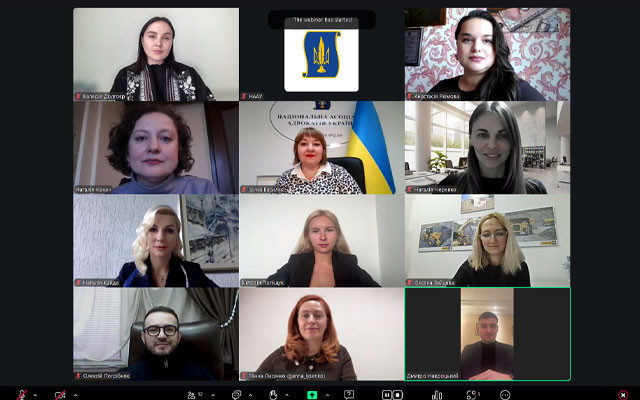
Discussion
Occupational safety during wartime: legal risks and employer liability
On October 21, the National Bar Association of Ukraine held a round table discussion on «Occupational safety in conditions of martial law». Participants discussed how the war has changed the requirements for safe working conditions, what guarantees remain for employees, and what responsibility employers bear for violations of legislation in this area.
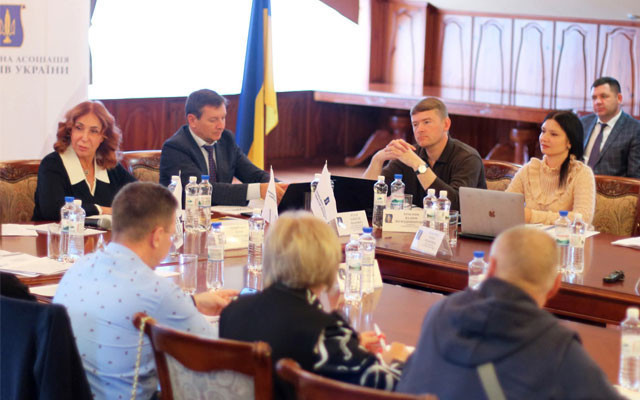
Self-government
BCU condemned information attacks on advocacy
Bar Council of Ukraine strongly condemned the coordinated campaign to discredit advocacy, in particular the leadership of the Odessa region bar association. Protecting colleagues from manipulation and misrepresentation became a separate item on the agenda of the BCU meeting on October 17–18.
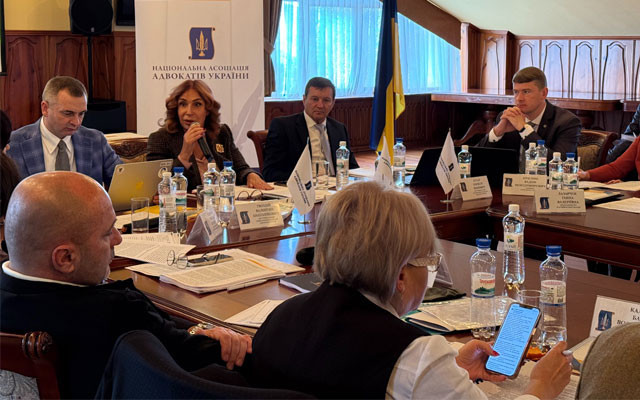
Self-government
Approaches to remuneration of advocates in the FLA system must change – L. Izovitova
Payments to advocates in the free legal aid system are made after court proceedings are completed and can take years. During this time, advocates provide protection without payment, essentially lending money to the state. This practice contradicts Article 43 of the Constitution.
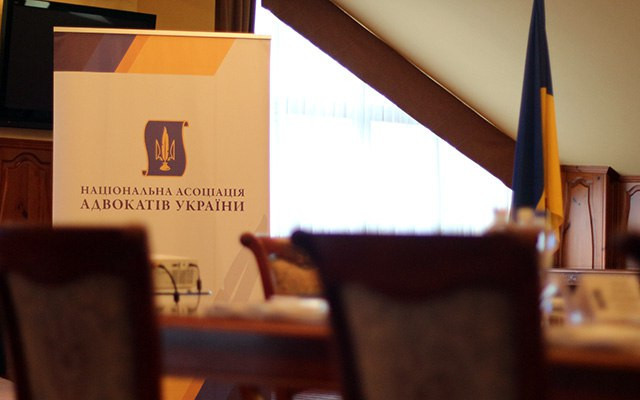
Self-government
The BCU holds its October meeting in Lviv region
The Bar Council of Ukraine is starting its next two-day meeting today, 17 October. Items on the agenda include issues relating to the activities of bar self-government bodies, the implementation of the institution's tasks and interaction, and the consideration of requests for clarification.
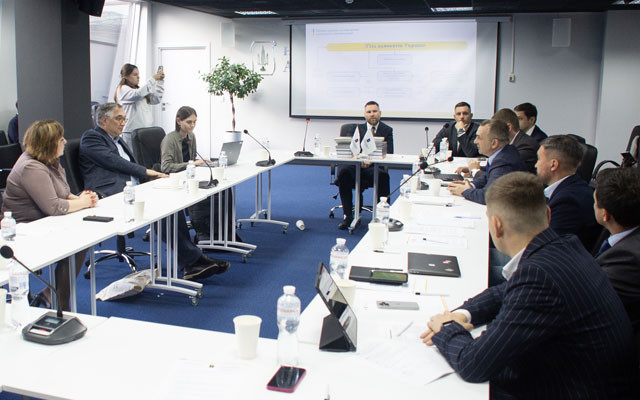
Interaction
Advocates discussed possible areas of cooperation with the business ombudsman
Protecting the legitimate interests of businesses is a common area of work for advocacy and the Business Ombudsman Council. The former is an independent constitutional institution within the justice system, while the latter is an important element of the mechanism for responding to complaints from entrepreneurs.
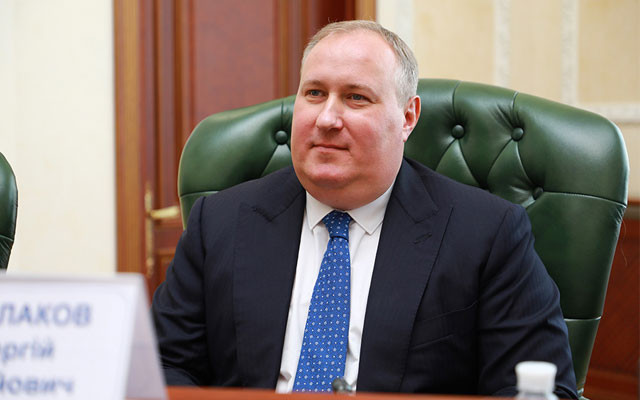
Self-government
The BCU's decision regarding Maselko's actions does not constitute pressure on him — conclusion of the HCJ
The High Council of Justice did not find any signs of pressure on this member of the High Council of Justice in the decision of the Bar Council of Ukraine No. 82 of 12 August 2025 on Roman Maselko's interference in the practice of law. The BCU document was adopted within the scope of its powers and was not intended to influence the activities of a member of the HCJ.
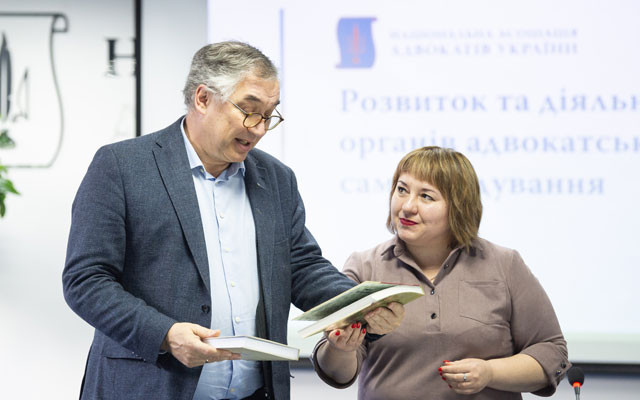
Other
The business ombudsman was presented with a book about his grandfather, an advocate
The life story of Ukrainian advocate Kornel Vashchuk, who combined military experience and legal integrity, was included in the scientific and documentary publication «100 years of the Union of Ukrainian Advocates: articles, materials, documents».
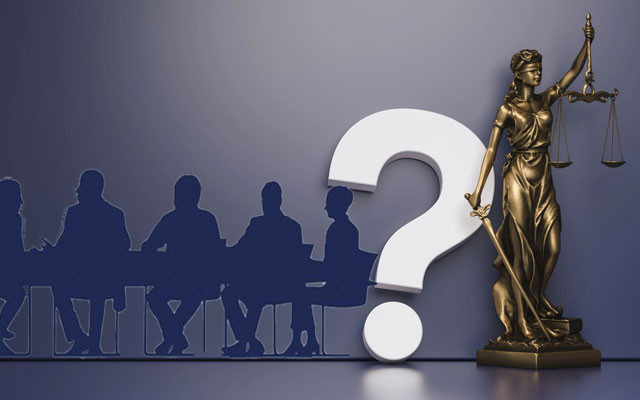
Legislation
UNBA supported the draft law on restoring sovereignty
The Ukrainian people alone have the right to form state authorities. Delegating powers to form authorities to persons who are not citizens of Ukraine is contrary to the provisions of the Constitution.
Publications

Censor.net Protecting advocates – protecting justice: addressing concerns about the new law

Ihor Kolesnykov A BRIEF SUMMARY REGARDING THE APPLICATION OF THE ORDER ON EXTENDED CONFISCATION IN LATVIA REGARDING FINANCIAL ASSETS OF…

Valentyn Gvozdiy WORKING IN A WAR ZONE

Lydia Izovitova Formula of perfection

Sergiy Vylkov Our judicial system is so built that courts do not trust advocates

Iryna Vasylyk Advocacy in the proclamation of Independence of Ukraine

Oleksandr DULSKY When we cross the border of the Supreme Anti-Corruption Court, we get into another department of the National Anti-Corruption…

Vadym Krasnyk The UNBA will work, and all obstacles and restrictions are only temporary inconveniences
